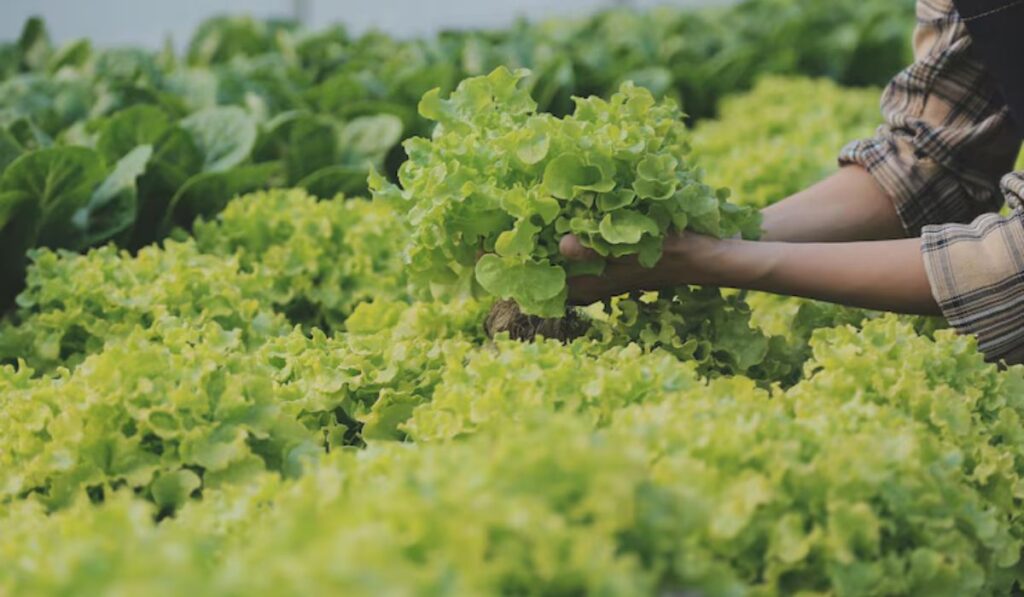Organic farming has gained significant attention over the past few decades as a sustainable agricultural practice that prioritizes environmental health, animal welfare, and human well-being. Unlike conventional farming, organic farming avoids synthetic chemicals and genetically o farming modified organisms (GMOs), focusing instead on natural processes and inputs. This article explores the benefits, challenges, and best practices of organic farming.
Benefits of Organic Farming
Environmental Benefits
- Soil Health: Organic farming practices enhance soil fertility by using organic fertilizers, such as compost and manure, which improve soil structure, water retention, and nutrient content. Crop rotation and cover cropping further prevent soil erosion and degradation.
- Biodiversity: Organic farms often host a greater variety of plants, animals, and microorganisms. This biodiversity supports ecosystem stability and resilience, helping to control pests and diseases naturally.
- Water Quality: By avoiding synthetic pesticides and fertilizers, organic farming reduces the risk of water pollution from agricultural runoff. This leads to cleaner waterways and reduced harm to aquatic life.
- Climate Change Mitigation: Organic farming can sequester carbon in the soil through practices like cover cropping, reduced tillage, and the use of perennial crops. This helps mitigate the effects of climate change by reducing greenhouse gas emissions.
Health Benefits
- Nutrient-Rich Produce: Organic crops often contain higher levels of certain nutrients, such as antioxidants, vitamins, and minerals, compared to conventionally o farming grown crops. This can contribute to better overall health for consumers.
- Reduced Chemical Exposure: Organic farming eliminates the use of synthetic pesticides and fertilizers, reducing the risk of chemical residues in food. This is particularly beneficial for vulnerable populations, such as children and pregnant women.
Economic and Social Benefits
- Rural Development: Organic farming can support rural economies by creating jobs and promoting local food systems. It often involves smaller-scale operations that are more closely tied to local markets.
- Animal Welfare: Organic farming standards generally require higher welfare conditions for livestock, including access to outdoor spaces and organic feed, leading to healthier and more humane treatment of animals.
Challenges of Organic Farming
Yield and Productivity
- Lower Yields: Organic farms may produce lower yields compared to conventional farms due to the absence of synthetic fertilizers and pesticides. This can make organic farming less competitive in terms of volume production.
- Pest and Disease Management: Without synthetic pesticides, organic farmers rely on natural pest control methods, which can be less effective and more labor-intensive. This can result in crop losses and reduced yields.
Economic Viability
- Higher Costs: Organic farming often involves higher labor costs and expensive organic inputs. Certification and compliance with organic standards can also be costly, posing financial challenges for farmers.
- Market Access and Prices: While organic products often o farming fetch higher prices, market access can be limited. Small-scale organic farmers may struggle to compete with larger producers and face challenges in marketing their products.
Knowledge and Training
- Technical Expertise: Successful organic farming requires specific knowledge and skills in soil management, crop rotation, and natural pest control. Farmers need access to education and training to adopt and sustain organic practices.
- Research and Development: There is a need for continued research to develop and refine organic farming techniques. This includes breeding crop varieties suited to organic conditions and improving pest and disease management strategies.
Best Practices in Organic Farming
Soil Management
- Composting: Using compost improves soil structure, fertility, and microbial activity. It recycles organic waste and provides a steady supply of nutrients to crops.
- Cover Cropping: Planting cover crops during off-seasons prevents soil erosion, suppresses weeds, and enhances soil organic matter. Common cover crops include legumes, which also fix nitrogen in the soil.
Crop Rotation and Diversity
- Crop Rotation: Rotating crops helps break pest and disease cycles, improves soil fertility, and reduces the need for chemical inputs. Diverse crop rotations o farming include legumes, grains, and vegetables.
- Polyculture: Growing multiple crop species together (polyculture) increases biodiversity, reduces pest and disease pressure, and promotes a more resilient farming system.
Natural Pest and Disease Control
- Biological Controls: Introducing beneficial insects, such as ladybugs and predatory beetles, helps control pest populations naturally. Encouraging habitats for these beneficial organisms supports ecological balance.
- Botanical Pesticides: Using plant-based pesticides, such as neem oil or garlic extract, can manage pests with minimal environmental impact. These are biodegradable and less toxic to non-target organisms.
Water Management
- Efficient Irrigation: Implementing drip irrigation and rainwater harvesting conserves water and reduces the risk of waterlogging and soil erosion. These methods ensure optimal water use and reduce wastage.
- Mulching: Applying organic mulch helps retain soil moisture, suppress weeds, and add organic matter to the soil as it decomposes. Mulching can improve plant health and yield.
Animal Husbandry
- Pasture-Raised Livestock: Providing access to pasture allows animals to exhibit natural behaviors and improves their overall health. Rotational grazing systems enhance pasture quality and prevent overgrazing.
- Organic Feed: Feeding livestock organic feed ensures they receive high-quality nutrition free from synthetic additives. This contributes to the health of the animals and the quality of animal products.
Conclusion
Organic farming presents a holistic approach to agriculture that prioritizes environmental sustainability, human health, and animal welfare. While it faces challenges such as lower yields, higher costs, and the need for specialized knowledge, the benefits of organic farming make it a vital part of the future of agriculture. By adopting best practices in soil management, crop diversity, natural pest control, and water management, organic farmers can overcome these challenges and contribute to a healthier and more sustainable world.







